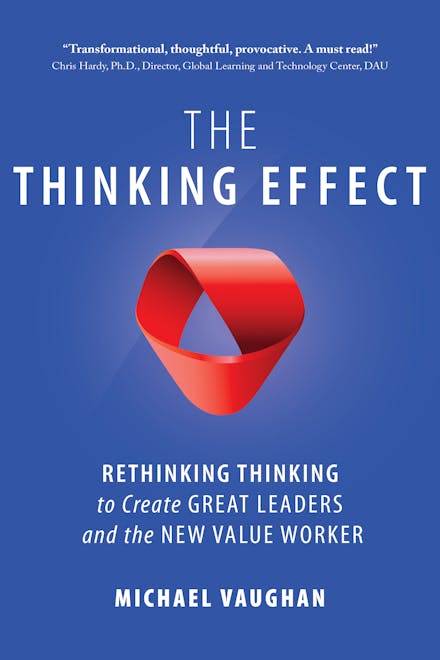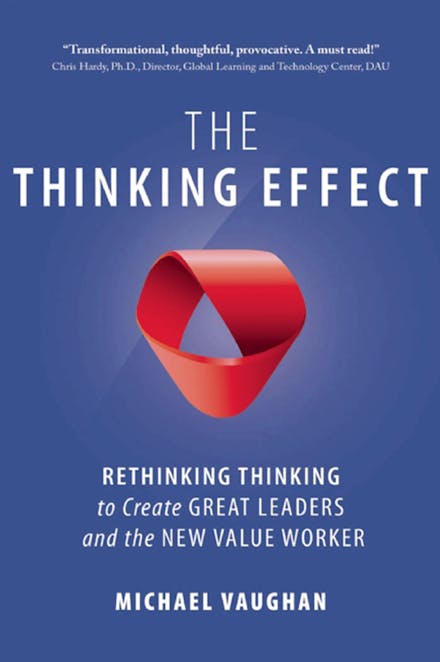Imprint
- Nicholas Brealey Publishing
- Nicholas Brealey Publishing
The Thinking Effect: Rethinking Thinking to Create Great Leaders and the New Value Worker
Michael Vaughan
Prose: non-fiction, Business & management, Management & management techniques
In a rapidly changing world there is an increasing need for critical, creative, and systems thinking. These abilities, though, are only gained through a virtuous circle of trying, reflecting, learning, and trying again; despite this, most organizations are still trying to develop these skills through linear approaches. The Thinking Effect by Michael Vaughan redefines smart thinking and effective l
In a rapidly changing world there is an increasing need for critical, creative, and systems thinking. These abilities, though, are only gained through a virtuous circle of trying, reflecting, learning, and trying again; despite this, most organizations are still trying to develop these skills through linear approaches.
The Thinking Effect by Michael Vaughan redefines smart thinking and effective learning - teaching how rather than what to think. Vaughan has spent his career teaching smart thinking to Fortune 500 companies and government agencies around the globe.
By adopting this new thinking, leaders will learn how to develop "neural leadership" - understanding and engaging with the psychology of their team - while employees at all levels will learn how to: develop patterns of thought that differentiate top performers from those who merely do their jobs, increase productivity, improve problem-solving, and influence profitability, and become Value Workers who generate value for growth and a sustainable future.
The Thinking Effect offers learning solutions, individual practices, and real-world applications to help companies break free from institutional processes that hinder fresh and innovative thought. The result is an engaged, valuable workforce that rethinks established practices - and thinking itself.
Praise for The Thinking Effect: Rethinking Thinking to Create Great Leaders and the New Value Worker
-
Immense value to business leaders and their subordinates alike. You have to get management buy-in and get Michael Vaughan into your office! - Dane Cobain, SocialBookshelves.com
-
Finally a book that articulates a simple methodology of how to think versus what to think, that is sustainable, scalable, agnostic to time, economy, politics, and social and cultural bias. - Rodahl Leong-Lyons, Vice President of Sales Americas, HYATT
-
Vaughan articulates the subject excellently - teaching his readers how to think, rather than what to think. His arguments caused me to think about my own knowledge of business improvements and how I should look at processes from an alternative perspective - almost with a fresh pair of eyes. - Quality World
-
Vaughan s view on thinking actually ties in nicely with my personal workplace mantra: Be a decent human being. By pausing to consider the work we re doing more deeply, by weighing how our actions might affect others, we re inherently behaving in a way that s more collaborative and helpful.






























.png?auto=compress&w=150&h=60&fit=crop&fm=jpg)

.png?auto=compress&w=150&h=60&fit=crop&fm=jpg)

